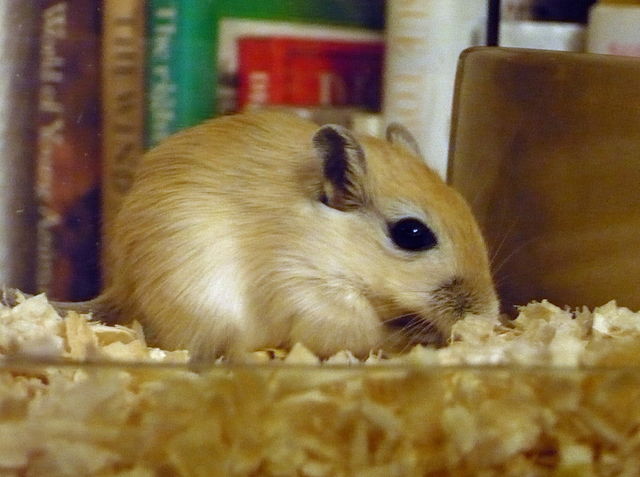Rodentia Intelligencia

The technology of the world of international spies is typically boring, despite how TV and movies portray it. The CIA probably doesn’t have sniper rifles which can take out a target from miles away. MI6 agents probably don’t wear wristwatches which also work as crystal-clear listening devices and as-needed explosives. And there are probably no agents of S.H.I.E.L.D. (and no invisible planes or helicarriers). If there’s a real James Bond, he probably drives a pretty boring car — one which doesn’t have laser-guided missiles or anything like that.
That said, there have been some interesting innovations in the spy game over the years, for sure. Like spy-catching gerbils.

Yeah, those guys. They make for good counter-intelligence tools. Kind of.
In 2001, what is now the UK’s National Archives opened a new exhibit on the spy game, titled “Shaken, Not Stirred” after the fictional James Bond’s go-to drink order instructions. To kick off the new exhibition, the Archives invited Stephen Lander, then the director general of MI5, to give some remarks on the history of espionage. Per Lander, if you walked through an Israeli airport in the 1970s, there’s a good chance some gerbils took a whiff of you.
The idea came from research by the Royal Canadian Mounted Police. Gerbils have a heightened sense of smell and, the RCMP scientists discovered, could pick out the scent of adrenaline secreted in human sweat. Terrorists and would-be hijackers probably have high amounts of adrenaline coursing through their systems as they make their way through the airport. If you could get some gerbils into the security mix, the theory went, maybe they could detect it. The Guardian explained how: “The plan was to place a cage of gerbils by the immigration desks at airports. On the other side of the queue of passengers, an electric fan would discreetly blow the scent of excess sweat in the direction of the cage. The gerbils would get excited and in a trained Pavlovian response they would push a lever, pointing the (metaphorical) finger of suspicion at the suspect.”
The Israeli government, always on the lookout for ways to secure Tel Aviv’s airport, gave the gerbil theory a try. According to the BBC, “carefully placed fans wafted the smell of a suspect’s hands towards the animals’ nostrils,” just as outlined above. We’re not sure how long the experiment lasted for, but we do know that it worked, to a degree: the gerbils most definitely could detect excess adrenaline.
But if you walk through airports today, you aren’t being smelled by gerbils (which is probably why MI5 chief Lander had no problem sharing news of this innovation). The problem? Terrorists aren’t the only people who are scared of flying. The BBC continued: “the gerbils were [able to be] trained to press a lever if they detected rises in adrenaline, but it was then found they could not discern between suspects and frightened passengers.”
Bonus fact: The gerbil-based airport security, had it worked, may have been a problem in Australia. Gerbils (and hamsters) can’t be imported into the country, out of fear that their populations will spin out of control.
From the Archives: Acoustic Kitty: The U.S. spy cat project which failed a not so cat-friendly result.
